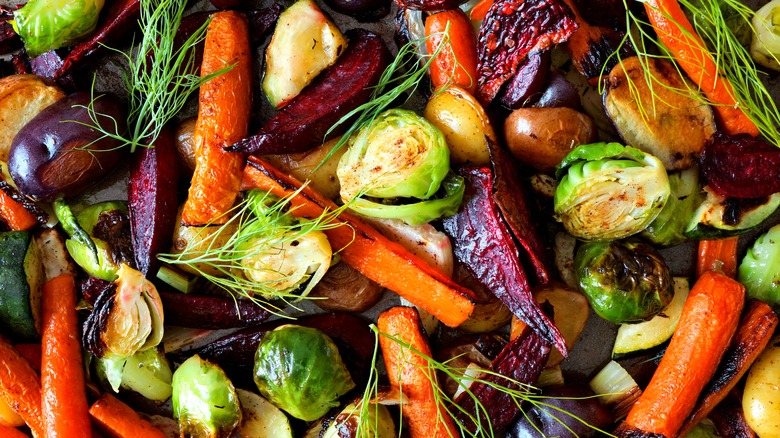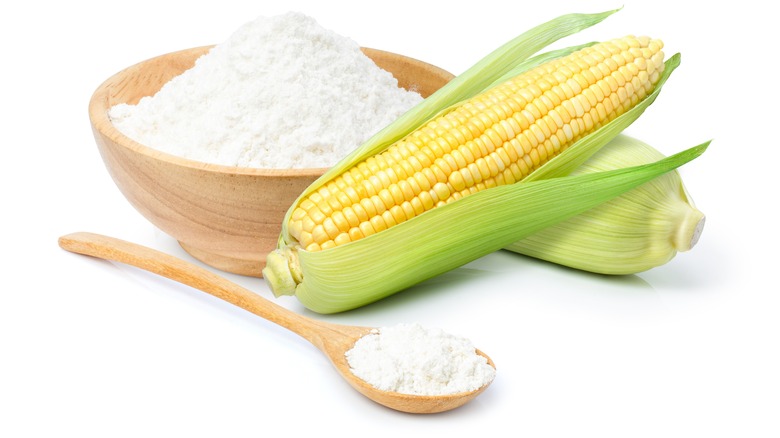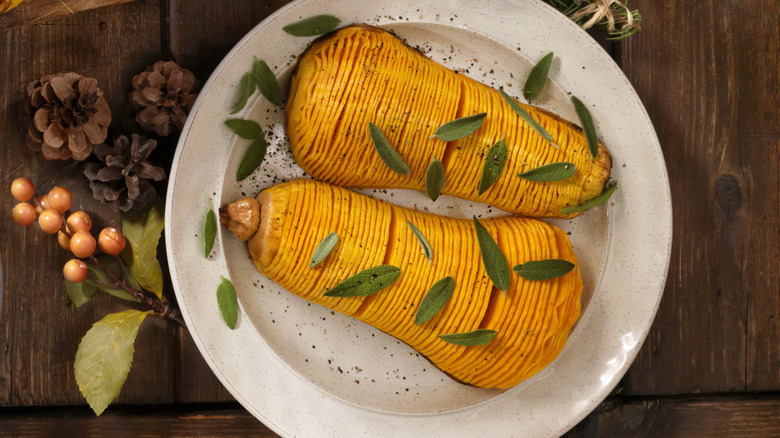The Single Ingredient You Need For The Crispiest Roasted Veggies
You know the drill. You've chopped all your vegetables into the perfect bite-size pieces, seasoned them just how everyone likes them, and roasted them for the precise amount of time so they're cooked just right. (Or maybe you forgot and left them in a couple of extra minutes — no judgment.) And yet, when you pull them out of the oven those beautiful veggies lack the crispy exterior you had hoped for. Maybe they're even a little bit on the mushy side.
Whether you were looking forward to crunchy cauliflower, crispy Brussels sprouts, or crusted potatoes — the disappointment is palatable. Fortunately, there is a way to prevent this disaster from happening again and all it takes is one common ingredient that most people already have on hand. If you want to make sure that your roasted vegetables come out perfectly every single time, look no further than the trusty container of cornstarch on your pantry shelf.
How to use cornstarch for crispy roasted vegetables
The process of using this common ingredient to make crispy roasted vegetables couldn't be simpler. After tossing your chopped vegetables in seasonings and oil or melted butter, you'll want to add a light dusting of cornstarch before tossing them and roasting them as usual with high heat. McCormick recommends using one tablespoon of the stuff for every pound of vegetables you cook.
You can use this technique to get any variety of roasted vegetables just right — whether it's a medley of carrots, potatoes, onions, or cauliflower, or even just one veggie ingredient meant to shine all on its own. By utilizing cornstarch, you're basically guaranteed that your side of Brussels sprouts will be crispy, your broccoli will be crunchy, and you won't have to worry about your squash turning to mush.
Your kitchen's unsung hero
It might seem a little strange that the same ingredient that thickens sauces and gravies, makes soft, chewy cookies, and keeps stir-fried meat moist and tender can also give you crispy roasted vegetables. But it's true! Cornstarch has so many different uses that make it an unsung hero in the kitchen — and beyond.
Cornstarch producer Bob's Redmill explains that this is because it takes the cake regarding multifaceted starches. In addition to being an excellent starch for thickening and perfecting textures, cornstarch is basically neutral as far as odor and flavor are concerned. And it also has top-notch anticaking properties. As an anticaking agent, cornstarch essentially wicks moisture away from the food it is added to — which is why it is used in batters for many fried foods. That ability to suck up moisture is also the key to why the starch helps vegetables maintain their crispiness in the oven. So why not give cornstarch a try? Just be prepared to watch those roasted veggies fly off the table as everyone goes back for seconds.


